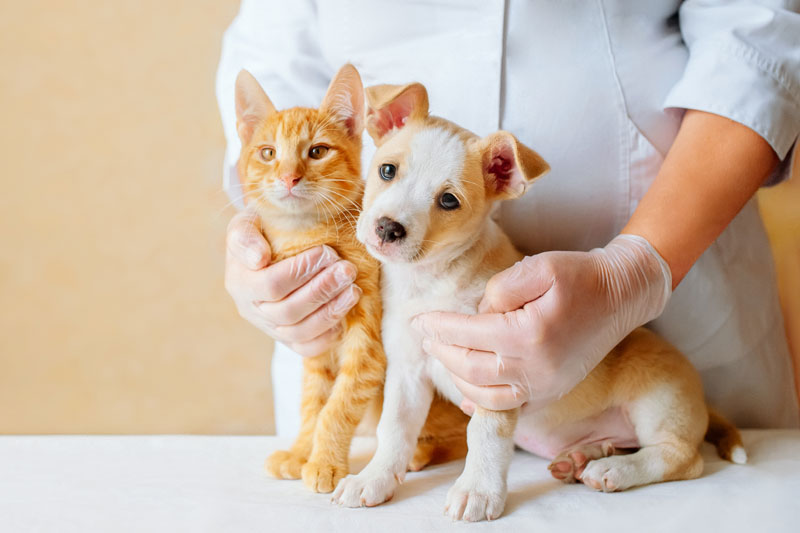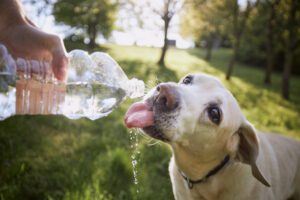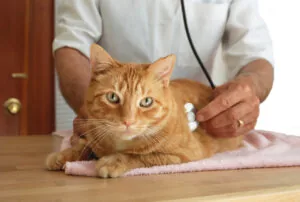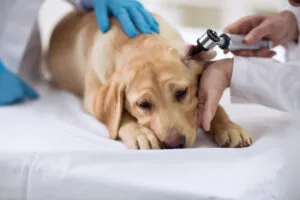Pet Poison Prevention Month

Pet Poison Prevention Month
March is National Pet Poison Prevention Month. It’s a good time for veterinary professionals to educate their clients on the dangers of accidental pet poisonings and how to prevent them. Awareness is the key to preventing poisoning emergencies and with these tips you can keep your pet safe and avoid a trip to the veterinary emergency hospital.
Common household foods, plants, and products
There are numerous human foods which can be toxic to pets. Here are some of them:
- Alcoholic beverages
- Apple seeds
- Apricot pits
- Avocados
- Cherry pits
- Candy (particularly chocolate—which is toxic to dogs, cats, and ferrets—and any candy containing the toxic sweetener Xylitol)
- Coffee (grounds, beans, and chocolate-covered espresso beans)
- Garlic
- Grapes
- Gum (can cause blockages and sugar free gums may contain the toxic sweetener Xylitol)
- Hops (used in home beer brewing)
- Macadamia nuts
- Moldy foods
- Mushroom plants
- Mustard seeds
- Onions and onion powder
- Peach pits
- Potato leaves and stems (green parts)
- Raisins
- Rhubarb leaves
- Salt
- Tea (because it contains caffeine)
- Tomato leaves and stems (green parts)
- Walnuts
- Xylitol (artificial sweetener that is toxic to pets)
- Yeast dough
Common house plants that are known to be toxic include:
- Aloe
- American Holly
- Lilies
- Rhubarb
- Shamrock Plant
- Spring Parsley
- John’s Wart
- Tomato plant
- Tulips
- Yucca
It’s important to note that spring and summer can be particularly hazardous times for pets with lawn and garden chemicals out. Be cautious, read directions carefully, and keep extra supplies out of reach and sealed tightly.
Household items toxic to pets (just a short sample of a few items toxic to cats and dogs):
- Bleach
- Toilet Cleaning Tablets
- Essential oils
- Carpet Fresheners
- Mosquito Repellant
- Aspirin
- Water & Vinegar
- Breath fresheners
- Topical Ointments/Creams
- Cigarettes/Nicotine Patches
Symptoms of Accidental Poisoning
Some poisons will result in an immediate reaction for your pet while others may take several days to manifest symptoms. While there is not one set of exact symptoms to indicate a pet has been poisoned, there are some general symptoms to look for, including:
- Drooling, vomiting, loss of appetite, diarrhea
- Lethargy, weakness
- Pale or yellowish gums
- Excessive thirst or urination
- Nervousness, hyperactivity, muscle tremors, seizures, coma
Appropriate pet proofing and awareness of what to do in the event of a pet poisoning situation are both important points to consider. Having the telephone numbers of local poison control centers as well as veterinary emergency hospitals is also important for ready access to sources of information about potential poisonous substances. The Pet Poison Helpline is useful for clients in those cases where poisoning is suspected. The Pet Poison Helpline at (800) 213-6680 is available 24 hours a day. If you suspect your dog or cat has ingested something poisonous, call the helpline or your local veterinarian immediately. Accurate and timely identification of the suspected substance is very important. Having the container, package, or label in hand will save valuable time and may save the life of your pet.
Share This Post
Recent Posts
About Shallowford Animal Hospital
Shallowford Animal Hospital and The Pet Spa at Shallowford are dedicated to the exceptional, compassionate care your pet deserves. Pets hold a very special place in our families, and we treat yours like our own.



